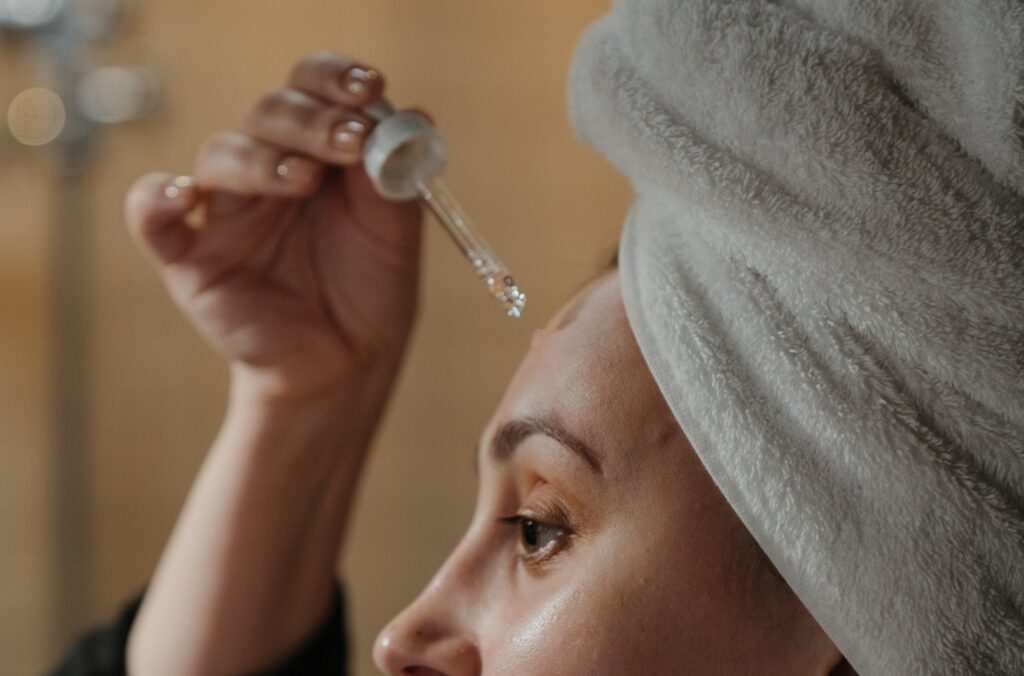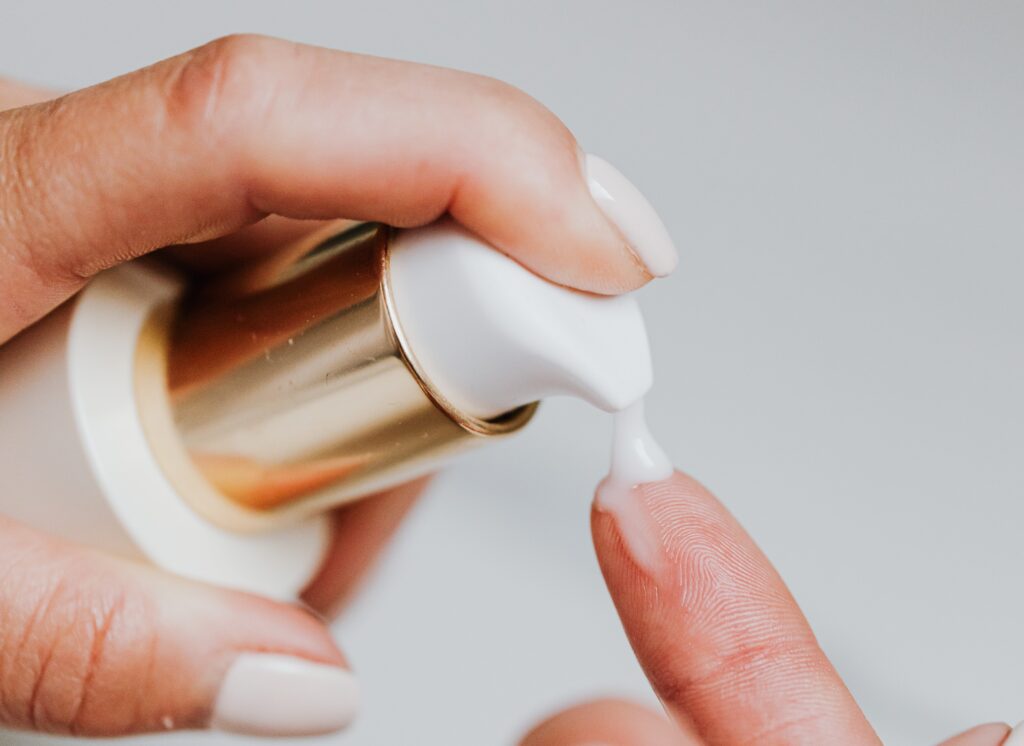Discover the truth behind the shelf life of niacinamide in our thorough exploration: Does Niacinamide Expire or Stand the Test of Time? Niacinamide, a powerful skincare ingredient, has garnered significant attention for its benefits in treating acne, reducing hyperpigmentation, and improving overall skin health.
But like any product, the issue of expiry date is something that concerns many skincare lovers. In this post, we get into the nitty-gritty of niacinamide’s shelf life, address some confusion around expiration dates, and explain how to tell if your niacinamide’s gone bad. By combining expert insights and scientific research, we hope to demystify the subject and arm you with the information to feel empowered in your skincare choices.
Come with us as we reveal the truth about niacinamide expiry and delve into the variables of its stability and efficacy over time. Whether you’re an avid skincare enthusiast or just ever so curious about the shelf lives of your beloved products, the helpful information in this article will change the game for how to maximize the benefits of niacinamide.
The benefits of niacinamide for the skin
Niacinamide (vitamin B3) is a water-soluble vitamin that has multiple benefits for your skin. It is a versatile ingredient that can be used to address a variety of skin concerns, including:
Acne: Niacinamide has been shown to reduce sebum production, which can help to prevent acne breakouts. It can also help to reduce inflammation and redness associated with acne.
Hyperpigmentation: Niacinamide can help to fade dark spots and uneven pigmentation. It does this by reducing the production of melanin, the pigment that gives skin its color.
Pores: Niacinamide can help to reduce the appearance of pores by increasing the production of collagen and elastin, the proteins that give skin its structure.
Fine lines and wrinkles: Niacinamide can help to improve the appearance of fine lines and wrinkles by increasing collagen production.
Redness: Niacinamide is a calming ingredient that can help to reduce redness and irritation.
Dryness: Niacinamide increases the production of natural moisturizing factors (NMFs), which can help to improve hydration in the skin.
Anti-aging: Niacinamide can help to protect the skin from damage caused by free radicals, which can lead to premature aging.
Understanding the expiration date on skincare products
If you are wondering does niacinamide expire? then you need to understand the expiration date. A lot of people think that the expiration date on skincare products means something different than it does. They think that it’s a safety date, a shelf life, or even a safety limit—but none of those things are true!
The expiration date is simply the date by which your product should be used. It’s not any more important than knowing when you bought it or how long you’ve had it in your cabinet (unless there’s moldy cheese attached to yours).
The expiration dates listed on products are there because they’re required by law in some countries: if they weren’t there and companies didn’t have them visible somewhere on their packaging and advertising material in order to inform consumers about when they should stop using their products before getting sick due to bacterial growths (which can happen after prolonged exposure), then consumers would never know when their purchases were at risk of going bad unless they kept meticulous records themselves like doctors do with patient charts.
Does niacinamide expire?
Yes, niacinamide does expire. The shelf life for niacinamide will vary depending on the product formulation, storage conditions, and expiry date.
Niacinamide serums usually have a shelf life of around 12 to 18 months after opening. But , it’s suggested to look at the expiration of the product on the packaging. When in doubt about the expiration of a product, it’s better to stay safe and just throw out a niacinamide product.

Factors that can affect the shelf life of niacinamide
Now you have the answer to does niacinamide expire? Let’s explore the factors that affect its shelf life.
Formulation:
Niacinamide is more stable in water-based products than in oil-based products. This is because water-based products are less likely to contain bacteria or other contaminants that can degrade niacinamide.
Storage conditions:
Niacinamide should be stored in a cool, dark place. Exposure to heat, light, and air can accelerate the degradation of niacinamide.
Expiration date:
Most niacinamide products have an expiration date printed on the packaging. This date is the last day that the product is guaranteed to be effective.
Concentration
Niacinamide products with higher concentrations of niacinamide may have a shorter shelf life than products with lower concentrations.
Preservatives:
The type and concentration of preservatives used in a niacinamide product can also affect its shelf life.
pH:
Niacinamide is more stable at a pH of 6-7.5. Products with a lower or higher pH may have a shorter shelf life.
Does Niacinamide Expire? Signs that niacinamide has expired
Now we know does niacinamide expire? but in case you might think your fine niacinamide has expired. So, here are some signs that niacinamide has expired:
Change in color: Niacinamide can change color over time, especially if it is exposed to light. If the product has turned yellow, brown, or another color that is not its original color, it is likely expired.
Change in odor: Niacinamide should have a mild, slightly sweet odor. If the product has a strong or unpleasant odor, it is likely expired.
Change in texture: Niacinamide should be a clear or slightly cloudy liquid. If the product has become cloudy, lumpy, or separated, it is likely expired.
Loss of potency: Niacinamide can lose its potency over time. If you are not seeing the same results from the product as you used to, it may be expired.
Signs of contamination: If the product has been opened and not used for a long time, it may be contaminated with bacteria or other microorganisms. This can cause the product to look, smell, or feel different.
Proper storage and handling of niacinamide products
Here are some tips on the proper storage and handling of niacinamide products:
- Store the product in a cool, dark place. Niacinamide is more stable in cool temperatures, so avoid storing it in hot or humid places. A cupboard or drawer in your bedroom or bathroom is a good option.
- Keep the product tightly sealed. This will help to prevent the product from coming into contact with air, which can cause it to oxidize and lose its potency.
- Avoid exposing the product to light. Niacinamide can also degrade when exposed to light, so it is best to store it in a dark place.
- Use the product within the recommended period of use. This will help to ensure that the product is still effective.

Additional Tips
- If you are using a niacinamide serum, apply it to your face after cleansing and toning, but before moisturizing.
- If you are using a niacinamide cream, apply it to your face after cleansing and moisturizing.
- Start with a small amount of niacinamide and gradually increase the amount as your skin gets used to it.
- If you experience any irritation, discontinue use and consult with a doctor or dermatologist.
By following these tips, you can help to ensure that your niacinamide products stay fresh and effective for as long as possible.
Frequently Asked Questions
Is niacinamide safe for all skin types?
Yes, niacinamide is generally safe for all skin types, including sensitive skin. It is a non-irritating and non-comedogenic ingredient, meaning that it is not likely to clog pores.
How often should I use niacinamide?
Niacinamide can be used once or twice a day, depending on your skin type and needs. If you have sensitive skin, start by using niacinamide once a day to see how your skin tolerates it. You can gradually increase the frequency of use as needed.
How do I apply niacinamide?
Niacinamide can be found in a variety of skincare products, including serums, moisturizers, and sunscreens. To apply niacinamide, simply cleanse your face and apply a pea-sized amount of product to your entire face and neck. You can use niacinamide on its own or under other skincare products.
Can I use niacinamide with other skincare ingredients?
Yes, niacinamide can be used with other skincare ingredients, such as hyaluronic acid, vitamin C, and retinol. In fact, niacinamide can actually help to improve the efficacy of other skincare ingredients.
Are there any side effects to using niacinamide?
Niacinamide is generally well-tolerated and has few side effects. However, some people may experience mild irritation, especially when using high concentrations of niacinamide. If you experience any irritation, stop using the product and consult with a dermatologist.
How long does it take to see results from using niacinamide?
Most people start to see results from using niacinamide within a few weeks of regular use. However, it is important to note that everyone’s skin is different, and it may take longer for some people to see results.
Conclusion: Does Niacinamide Expire?
Niacinamide is a form of vitamin B3, which is a water-soluble vitamin. It has no known toxicity and has been used for centuries in both medicine and nutrition. The main use of niacinamide is as an anti-aging supplement because it can help achieve skin health by preventing damage from free radicals caused by UV rays from the sun or other sources.
Niacinamide can also be taken orally to lower cholesterol levels, control blood sugar levels (diabetes) or improve blood flow in the brain due to cardiovascular disease (CVD). I’ve never seen any information about expiration dates on these types of supplements but if anyone knows anything about this please let me know!